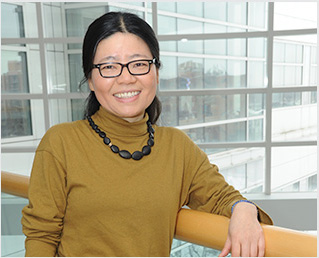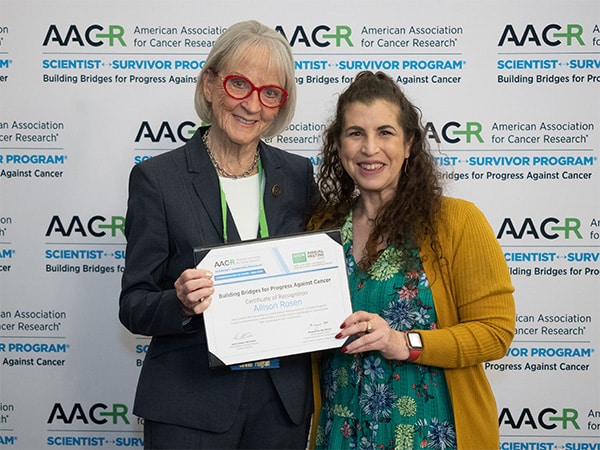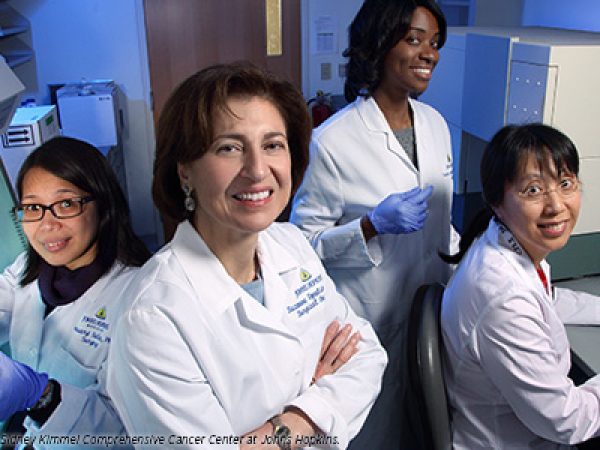Rong Xu, PhD: Tapping Technology to Improve Cancer Prevention
Supported by an AACR grant Award, cancer researcher uses bioinformatics to explore paths to cancer prevention.

Cancer. The word alone can incite a rush of fear and emotion the moment it is uttered.
While progress in early detection and advances in treatments have led to better outcomes for many patients, that progress has also sparked new questions, including:
What if we could stop people from getting cancer in the first place?
It is well known that certain behaviors like smoking, physical inactivity, an unhealthy diet, and skipping preventive screening measures affect a person’s risk of developing cancer. Increasingly, the field of cancer prevention science is focused on improving our understanding of how cancer develops.
Lifestyle changes such as maintaining a healthy weight and avoiding smoking can indeed reduce the risk of certain types of cancer, but it is also important to realize that there are multiple factors that drive tumor development. Understanding these factors could lead to improved strategies to prevent cancer.
Rong Xu, PhD, assistant professor in the Department of Epidemiology and Biostatistics at Case Western Reserve University in Ohio, designed a research program to understand the complicated process of tumor development. Supported by the Landon Foundation-American Association for Cancer Research INNOVATOR Award for Cancer Prevention Research, Dr. Xu is studying the integration of environmental and genetic factors to improve cancer prevention and treatment strategies.
“Many cancers are complex, with genetic, epigenetic, and environmental factors contributing to both disease susceptibility and progression,” says Dr. Xu. “While significant progress has been made in understanding genetic and molecular aspects of cancer, relatively little is known about how, and which, environmental factors interact with genetic factors in carcinogenesis.”
“We are regularly exposed to a wide range of chemicals originating from environmental toxins and pollutants, food additives, diet, medications, household pollutants, and more,” says Xu. “The identification of modifiable environmental factors and the understanding of their roles in diseases will provide insight into the basic mechanisms of cancers and enable new possibilities for diagnosis, prevention, and treatment.”
This is the ultimate goal of Dr. Xu’s research, which she approaches somewhat differently than standard laboratory-based science.
“My approach is mainly computational, which allows me to integrate and reason over vast amounts of publicly available datasets,” Dr. Xu explains. “My study will generate a large amount of data and hypotheses that will assist other investigators in conducting hypothesis-driven biomedical and clinical studies.”
Dr. Xu is uniquely qualified for such work. After earning an undergraduate degree in biology and a master’s degree in computer science, she combined these seemingly different fields and earned a doctorate in biomedical informatics from Stanford University.
“Biomedical informatics is an interdisciplinary field that studies and pursues the effective uses of biological information to improve human health,” says Dr. Xu. “My training in biology taught me to generate rational hypotheses and to appreciate the complexity of biological systems. My training in computer science taught me to develop novel algorithms to make sense of these complex biological data.”
Dr. Xu is currently six months into her two-year grant term. In addition to making an impact on the field of colorectal cancer, she is confident that the studies supported by this grant will be readily translatable to other types of cancer, as well as other diseases where understanding how modifiable environmental factors can inform prevention strategies and improve treatment approaches.
“This grant made a significant impact on my research,” says Dr. Xu. “It has encouraged me to enter an entirely new area of research, studying how environmental factors contribute to diseases such as cancer.”




